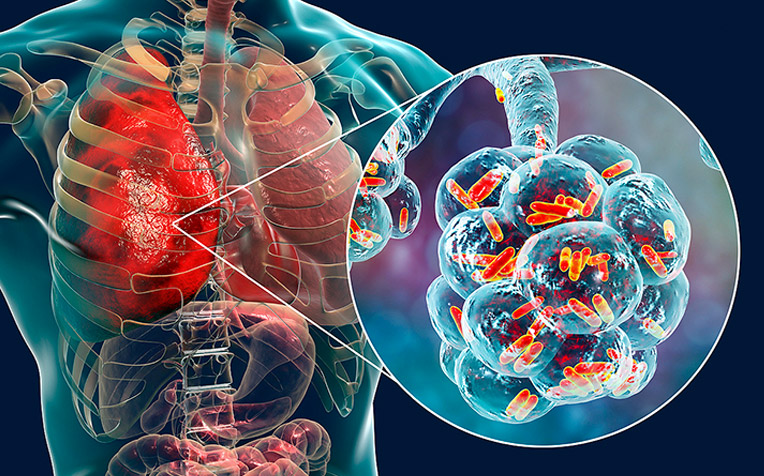
To date, there have been no confirmed cases of the novel coronavirus pneumonia in Singapore. However, pneumonia continues to be a leading cause of death here.
Assoc Prof Loo Chian Min, Senior Consultant from the
Department of Respiratory and Critical Care Medicine at
Singapore General Hospital (SGH),
a member of the
SingHealth group, shares more.
Pneumonia accounted for 20.6 per cent of deaths in Singapore in 2018, just behind cancer, the top killer, which caused 28.8 per cent of deaths, according to the Ministry of Health (MOH).
What is pneumonia?
In pneumonia, the air-filled tiny sacs in the lungs get inflamed. These sacs, called alveoli, fill with pus and other fluids, making it difficult for oxygen to reach the blood and be transported everywhere in the body. This lung inflammation is usually caused by an infection.
Pneumonia can affect one or both lobes of the lungs. This correlates with the severity of the disease and it is also dependent on the cause of pneumonia. For example, viral pneumonia tends to involve a few lobes (called diffuse) whereas bacterial tends to be more localised unless it is severe, in which case a few lobes can be involved.
"Infants and young children, people over the age of 65, and people with chronic diseases such as chronic obstructive pulmonary disease, diabetes, cancer and heart disease, are at greatest risk of developing severe pneumonia which can be life-threatening," says Assoc Prof Loo.
Related article:
How a viral infection can kill you
Causes of pneumonia
Pneumonia is usually caused by infection from the following organisms:
Bacteria: The most common type is Streptococcus pneumoniae, followed by Haemophilus influenzae and other bacteria like Escherichia coli and Klebsiella pneumoniae. Infection from Mycoplasma pneumoniae, a bacteria-like organism, typically produces mild symptoms. This milder pneumonia is referred to as 'walking pneumonia' because it does not require bed rest.
Viruses: These are viruses similar to those causing common cold and influenza. Viral pneumonia is usually mild and is common in small children. Occasionally they may be severe and cause life threatening infection, like MERS-CoV (Middle East Respiratory Syndrome), Influenza H5N1 (bird flu), influenza H1N1 and the recent novel coronavirus pneumonia cluster in Wuhan.
Fungi: Fungi spores can be inhaled and cause infection in people with an underlying health problem or a weak immune system. It is uncommon in normal individuals.
A pneumonia infection can be contracted in the community (community-acquired pneumonia) or when you inhale food, drink, or harmful chemicals into your lungs (known as aspiration pneumonia).
Related article:
You can get the flu from the flu jab – fact or myth?
Pneumonia symptoms
Pneumonia symptoms vary depending on the cause, age of the patient, and the severity of the condition. Common pneumonia symptoms in adults are:
- Cough with phlegm
- Breathing difficulty
- Chest pain
- Body and muscle pain
- Fever, chills
- Headache
"In bacterial pneumonia, the cough produces thick greenish/yellowish phlegm while in viral pneumonia, the phlegm is white or clear," adds Assoc Prof Loo. "A patient suffering from bacterial pneumonia usually presents with a sudden onset of symptoms and high-grade fever."
Related article:
Pneumonia – How it is treated and prevention tips
--
Articles on
HealthXchange.sg are meant for informational purposes only and cannot replace professional surgical, medical or health advice, examination, diagnosis or treatment.